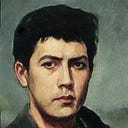Chomsky–Foucault Debate On Human Nature

It is humans who change the flow of history, change themselves, and become the product of history itself- Karl Marx.Marx stated that human nature does not exist only biologically, but psychologically, by distinguishing between human nature in general, and human nature as modified. Human nature is generally referred to as “constant urges” — such as hunger and sexual urges. Human nature as it has been modified is called a “relative impulse”, which is not an integral part of human nature, but comes from certain social structures and conditions of production and communication. The potential of human nature can be seen through historical development, just as the structure of the brain has remained the same since the dawn of history, and it is humans who change the flow of history, change themselves, and become the product of history itself.
The debate. Chomsky argues that human nature exists and is based within humans themselves, which characteristics are dynamic, creative, and the will to strive their potential to the very latest development possible. Chomsky being a linguist — said the process begins from childhood, by the act of acquiring languange — practice and understanding, to countless intricate bodies of knowledge in progress. All of this but for the better life of civilization, the achievement of social transformation, and so does the individual.
Foucault doubts or finds it difficult to accept the concept of human nature that is innate — to continue ‘becoming’ in the renewal development and actualization of the individual. He argues that human nature is more a posteriori in character, that it is formed, carried out, and inspired from all the contents and experiences of human life throughout civilizations. Foucault continued by reflecting on the history of science, which come eminent, developed throughout centuries, not by some grand accumulation of knowledge to progress and present linearly, but rather all of our knowledge with prejudices, naivety, along with the social-economic obstacles, religions, collective mentality — stacked with inventions and a new understanding of science, knowledge, and so on.
To bring up Marxism. Foucault argues that Marxism also believed in the concept of human nature which had not yet fully realized its potential — just similar to Chomsky minus Marxism. It’s just the reference goal or the success model of Marxism based on the concept of the bourgeois social life. That being said — people will be happy by living a bourgeois lifestyle, which according to Foucault has the potential to lead people into error — using the example of The Soviet Union, which were real, and at the same time utopic. Foucault continued, this “human nature” should rather develop into collective actions in the case of class struggles. Foucault stated, to overthrow the power of the ruling class/the bourgeois society, the proletarian does not necessarily act within the scope of morality regarding better justice with non-violence, or ideal society. The proletariat fight to win, as they finally manage to take power and feel the power of the bourgeois, for the first time in the long history of struggle.
Chomsky opposed strongly what Foucault said about this act of revolution of the class struggle, because people should not act with violence and the struggle must be fair and just — if without considering this, it will bring about the degeneration of law, justice, and human dignity, going backward from Chomsky’s ideas of the better development human nature and society. Chomsky said that he is not a committed pacifist, that the use of violence is acceptable under certain conditions, especially to lead and achieve a more just society and better justice. Therewith, one has to estimate the relative injustices to use violence and its grounding for the results obtained.
Foucault sees the social struggle as a war to win. The proletariat wages war to win, not because it is just. In our contemporary society, there should be no fight against the practice of injustice with the concept of justice which comes from the people who are part of the injustice community itself — as these people will present the very concepts of justice which are reflected and stem from injustice community they overthrown. What must be done is social criticism of the attack, or war, on agencies where the government exercises their force and power, such as the police and military — as Foucault emphasizes to also target those establishments which society often sees as independent, like the educational system, and the medical institution. For Foucault, this act could be that one way to achieve the “ideal functioning society”, as presented by Chomsky, in regards to human nature.
Chomsky simply states the opposite to Foucault and uses the fundamental human characteristics (or: nature) which are the sense of freedom, love, kindness, and sympathy. Based on the case of injustice and justice for the act of revolution — moreover to use violence in the process, one should be very careful with their term, and to act and think critically, and value everything relatively with skepticism. Chomsky believed that the idea of human nature is not merely related to class struggle, or Marxism, or the acquisition of power. Chomsky believed there are plenty of different issues regarding the matter — other kinds of oppression. For Chomsky, though human nature is still in the abstract definitions, with the constant changing factors and its defect, it is better to sketch it out, and keep it worked and discussed, for the realization of innovation, creativity, freedom, and understanding the science of man.
Through the two figures above, human nature within such comprehensive studies and development cannot escape being interpreted through the framework and background of one’s view. Foucault is a historian and Chomsky is a linguist. Both debate in their stance, express as well problems within their ideas, and concur with the opposites if that is as so.
To be continued…
References:
Debate Noam Chomsky & Michel Foucault — On human nature. 1971. Accessed on https://www.youtube.com/watch?v=3wfNl2L0Gf8&t=2311s
Fromm, Erich. Marx’s Concept of Man. 1961. Accessed on https://ysk-books.com/public/app/books/Marx's%20Concept%20of%20Man.pdf








